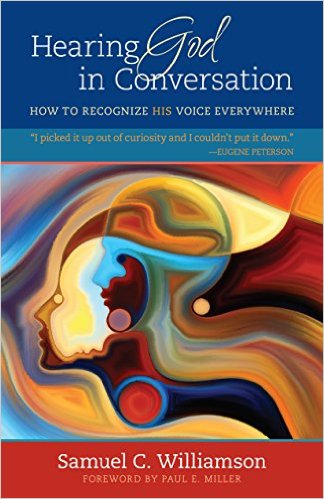|
Invaded
.
by Sam Williamson
Growing up, I had two close friends: one
came from a devout, Christian family, and the
other came from a devout, atheist family. One
family went to church Sunday mornings and prayer
meetings Wednesday night. The other played golf on
Sundays and watched TV on Wednesdays.
Apart from Sundays and Wednesdays (and perhaps
personal prayer times), the lives of my friends’
parents looked identical. Both taught fidelity in
marriage, neither would have cheated on their
income taxes, both valued self-effacement over
self-importance, and when neighbors were sick,
both brought over casseroles and mowed their
lawns.
Despite huge theological differences, both sets of
parents taught similar approaches to humility,
kindness, hard work, and civil service. Both sets
of parents looked identical.
Most people today—parents and kids—also look the
same. Most sleep together before marriage, chase
self-esteem over self-giving, and most desperately
seek to build a legacy by making a name for
themselves in career or family. Whether Christian,
agnostic, or atheist.
Temptations in sexuality, self-naming, and greed
were just as compelling fifty years ago as they
are today. And people gave in before just like
today. Why, however, are they considered acceptable
today when they were considered temptations
a generation ago?
Intellectual History
My university degree was in
Intellectual History. It studies not what
happened in the past as much as why it
happened. That is, Intellectual History is the
study of the hidden (usually unconscious) beliefs
of a culture; for it is those buried beliefs that
that determine our behavior.
For example: Why did you get angry at your wife
today when she asked you to take out the trash?
You didn’t blow up a month ago. Maybe you were
tired, but last month you were exhausted and kept
silent. This time, however, you pitied yourself.
Your mind obsessed with, “Why does ‘this’ always
happen to me? Why doesn’t anyone have my
back?” And you blew up.
The what in your life was weariness and an
untimely chore, but the why of your
behavior was the unconscious belief that you must
protect yourself for no one else will.
Every society has the same what’s of just
and unjust systems, longing for significance,
commitments of love, and temptations to greed, sex
and power. So, why do we accept sexual “freedom,”
exploding executive pay, and a self-glorifying
need to build legacies?
What’s, Why’s, and
Therefore’s
God’s people play a spiritual version of
the daisy game: “He loves me, he loves me not.” We
re-experience the up and down cycle of trust in
God followed by a deep reluctance to wait on him.
When God seems distant, or his answers take too
long, we opt for the world’s instant solutions.
Like a worm on a hook, the prospect of an
immediate meal undermines our spiritual wisdom:
- When Moses tarried on the mountain, Israel
insisted on a god they could see.
- When Israel tired of divinely selected
judges, they demanded, “Appoint for us a king
… like all the nations.”
- When the troubles in this life overwhelm us,
we grasp for self-love, self-esteem,
self-naming, and the prosperity gospel.
After Babylon sacked Jerusalem, a psalmist
lamented, “O God, the nations have come into your
inheritance; they have defiled your holy temple;
they have laid Jerusalem in ruins.”
Only it is us—you and me—who opened the door and
welcomed in the invaders. We open the door
whenever we look for quick answers, shortcuts to
long journeys, and immediate gratification. God
simply asks us to wait on him and his timing. He
waits on us to wait for him.
The Lord waits to be gracious to
you, and he exalts himself to show mercy
to you … blessed are all those who wait for
him. And though the Lord gave you
the bread of adversity and the water of
affliction, yet your Teacher will hide himself
no more, but your eyes shall see your Teacher.
(Isaiah 30:18 and 20)
We look for quickie remedies to adverse troubles,
while God says all we need is him.
Sam

Sam Williamson has published
numerous articles and has written two books.
He has a blog site, www.beliefsoftheheart.com,
and can be reached at
Sam@BeliefsoftheHeart.com.
Hearing
God in Conversation: How to Recognize
His Voice Everywhere, by Samuel C.
Williamson, published by Kregel
Publications, 2016, available from Amazon
top
illustration by (c) Kevin Carden
|

